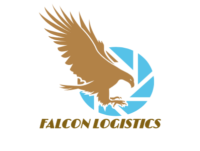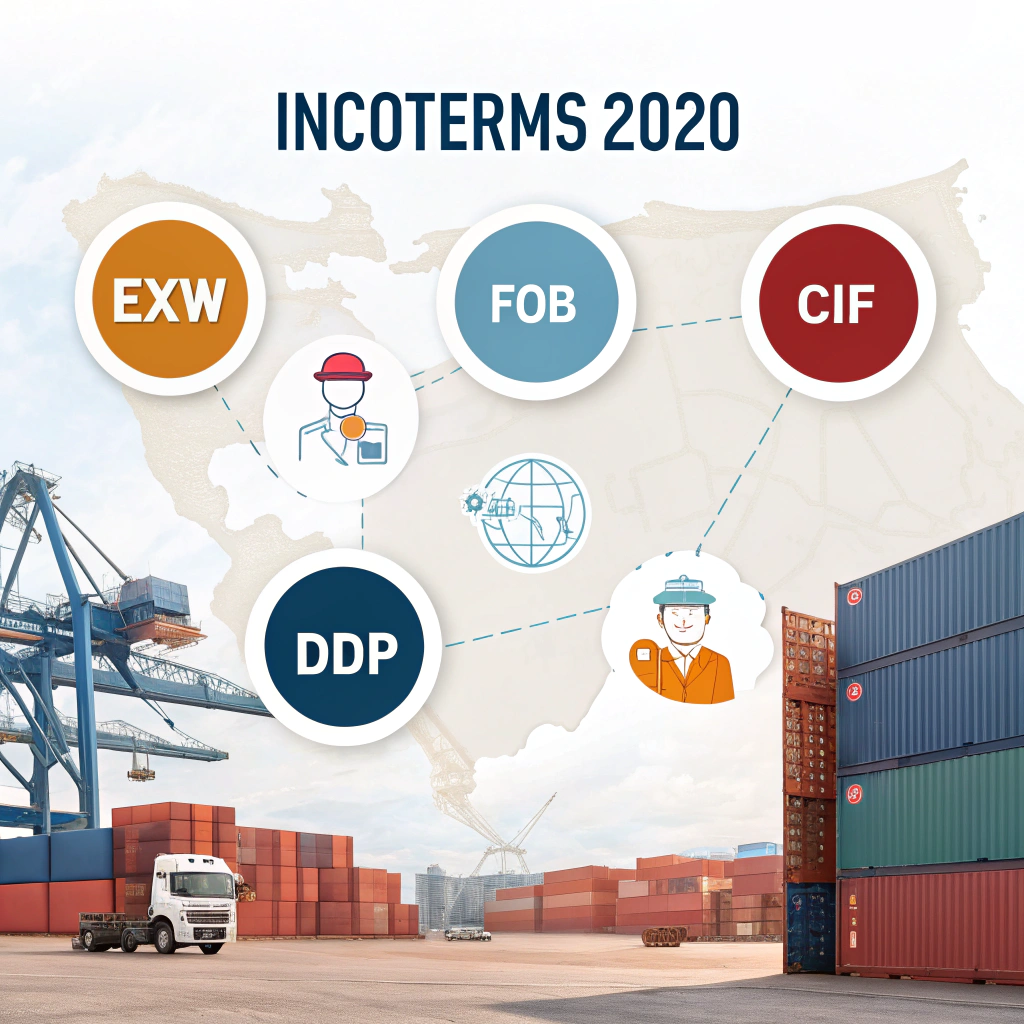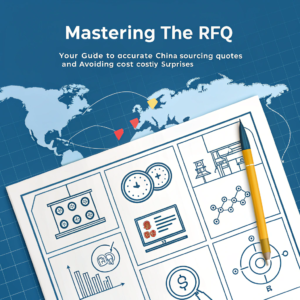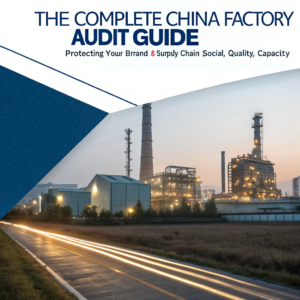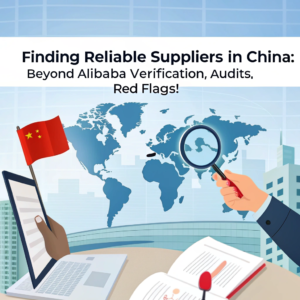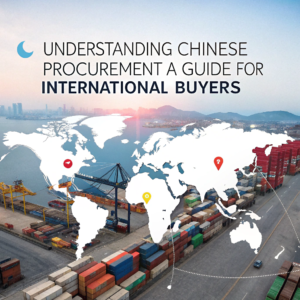If you’re involved in importing goods from China to the United States, you’ve likely stumbled upon terms like EXW, FOB, CIF, and DDP. These are not just random abbreviations thrown around by freight forwarders or suppliers; they are part of the Incoterms® 2020, a set of internationally recognized rules that define the responsibilities of buyers and sellers during international shipments. Understanding these terms can save you from unexpected costs, delays, and a lot of stress.
This article breaks down these four common Incoterms® specifically for China exports, so you can make an informed choice and keep your supply chain running smoothly.
Why Incoterms® Matter, Especially When Shipping from China
Incoterms® serve as a guidebook for international trade. They clarify exactly who is responsible for what during the shipping process. When dealing with China, this clarity becomes crucial because of the complexities involved in export procedures, transportation modes, customs compliance, and risk management.
Key questions Incoterms® answer include:
- Where does the seller’s responsibility end and the buyer’s begin?
- Who pays for shipping, insurance, and customs fees?
- Who bears the risk if goods are damaged or lost during transit?
- Who manages export clearance in China and import clearance in the US?
Choosing the wrong Incoterm® can lead to unexpected freight bills being dropped on your desk, cargo stuck at ports because nobody arranged customs clearance, disputes over damaged goods with unclear insurance coverage, or costly delays caused by missing export licenses.
Understanding the Four Most Common Incoterms® for China Exports
1. EXW (Ex Works – Named Factory/Workshop in China)
EXW places the minimum responsibility on the seller. The seller’s job is simply to make the goods available at their premises—whether that’s a factory or warehouse in China. They pack the goods (unless otherwise agreed) and provide basic commercial documents like invoices and packing lists.
From there, everything else is on you. You must arrange and pay for pickup from the factory, all export clearances in China (licenses, customs), the main international freight (ocean or air), insurance if you want it, plus all US import clearance duties, taxes, trucking to your warehouse, and final delivery.
The risk transfers to you the moment the goods are made available at the seller’s premises. That means any damage or loss after pickup is your responsibility.
Who should choose EXW? Experienced importers with solid logistics teams or trusted partners based in China. If you want full control over your shipment and potentially lower base costs but are comfortable handling complex Chinese export regulations, EXW can work well. However, it carries high risk if you don’t have local expertise because export clearance is entirely your responsibility.
2. FOB (Free On Board – Named Port of Loading in China)
FOB is often considered the sweet spot for ocean freight from China. Here, the seller takes on more responsibility by delivering goods cleared for export onto the ship at a specific Chinese port—say Shanghai or Ningbo. The seller handles all Chinese export formalities and pays costs up to loading the goods on board.
On your side as the buyer, you arrange and pay for the main ocean freight or air cargo from that port onward. You also cover insurance (which is highly recommended), US import clearance fees, duties, taxes, drayage from port to your warehouse, and final delivery.
The risk shifts to you when the goods are loaded safely onto the vessel at the port in China.
Why choose FOB? It strikes a balance between control and convenience. The seller handles tricky export clearance locally while you control freight carriers and costs for the main leg of transport. It’s also commonly used for ocean shipments from China.
A key note: Make sure your contract clearly states “FOB [Port Name],” like FOB Shanghai. This confirms that the seller’s responsibility includes getting goods loaded onto the ship and completing export clearance.
3. CIF (Cost, Insurance & Freight – Named Port of Destination in the US)
With CIF terms, the seller takes on even more responsibility—they pay for the goods themselves, clear them for export in China, arrange and pay for main ocean freight to a specified US port (e.g., Los Angeles), and provide minimal marine insurance (usually 110% of invoice value under Institute Cargo Clauses C).
The seller delivers goods onboard the vessel in China and provides necessary documents, including proof of insurance.
Your job as the buyer begins once goods arrive at the US port—you handle unloading costs, customs clearance, duties, taxes, drayage to your warehouse, and final delivery.
Risk passes to you as soon as goods are loaded onto the ship in China—meaning during transit, you bear risk despite the seller arranging insurance. It’s important to understand that this insurance is basic and may not cover many real-world risks like theft or damage from weather.
Who benefits from CIF? Buyers looking for a simple all-in-one price that covers goods, freight, and basic insurance. This term is popular among smaller importers or those new to importing because it reduces complexity.
Watch out for: The seller’s insurance is minimal and often insufficient for comprehensive coverage. You might need to purchase additional insurance separately. Also, you lose control over freight costs and carrier choice since the seller arranges shipping.
4. DDP (Delivered Duty Paid – Named Place of Destination in the US)
DDP represents maximum responsibility on the seller’s part. They cover everything: cost of goods, export clearance in China, freight charges, insurance during transit, US import clearance including payment of duties and taxes, plus delivery to your warehouse or any specified location in the US.
You only need to accept delivery and handle any local handling or unloading fees if applicable.
Risk remains with the seller until goods reach your door cleared for unloading.
Who should use DDP? Buyers wanting maximum simplicity with a true door-to-door solution who may lack import experience or prefer avoiding customs complexities altogether.
Key points to consider: Can your Chinese supplier reliably manage US customs clearance? Do they have a qualified US customs broker? Mistakes here can cause delays or fines that might eventually fall back on you. DDP pricing often includes hidden costs such as fluctuating duties and taxes—make sure you understand how these are handled so you’re not blindsided later. Also, choosing DDP means less flexibility to work with your preferred logistics partners.
How to Decide Which Incoterm® Is Right for You
Choosing an Incoterm® isn’t just about who pays what—it’s about matching responsibilities with your company’s expertise, risk tolerance, cost expectations, and relationship with your supplier.
Start by asking yourself:
- Do I want tight control over every step of shipping (EXW or FOB) or am I okay with more convenience even if it costs more (CIF or DDP)?
- Do I have trusted partners or logistics teams who can navigate Chinese export compliance? What about US import processes?
- How comfortable am I bearing risk during transit? Does my insurance strategy align with where risk transfers?
- How important is cost predictability? DDP offers upfront pricing but can be more expensive; EXW gives less predictability due to many variables.
- Does my supplier have experience handling complex processes like export clearance or US customs brokerage?
Answering these questions will help narrow down your options.
Falcon Logistics: Your Partner for Smooth China-US Shipments
Navigating Incoterms® can be tricky but getting them right is essential for avoiding costly surprises. Whether you choose EXW, FOB, CIF, or DDP for your next shipment from China, Falcon Logistics can support you every step of the way.
If you pick EXW or FOB terms, we manage origin services in China including export documentation and ocean/air freight booking. We ensure proper insurance coverage so you’re protected and handle all US customs clearance plus final delivery with care.
For CIF shipments, we take charge once goods arrive in the US—overseeing port discharge, customs brokerage including duties payment, and local delivery. We also analyze CIF insurance policies to advise if additional coverage is needed.
If DDP is your choice, we work closely with your supplier or act as their US customs broker to make sure complex import processes go smoothly without delays or fines affecting you.
Conclusion: Make Incoterms® Work for Your Business
Incoterms® might look like a confusing code at first glance, but understanding them deeply can save you time, money, and headaches when importing from China. Picking the right term means balancing control with convenience while managing risks efficiently.
Remember that no matter what term you select, partnering with an experienced logistics provider like Falcon Logistics ensures that gaps are filled professionally—from handling tricky export paperwork in China to ensuring smooth customs clearance in the US.
If you’re still unsure which Incoterm® fits your shipment best or want help navigating complicated regulations and cost factors, don’t hesitate to reach out for a personalized consultation. Your next shipment should be straightforward and stress-free—and that’s exactly what we’re here to deliver.
Meta Description:
Confused by Incoterms® like EXW, FOB, CIF & DDP when shipping from China? Learn who pays what and who handles risks in international trade with this detailed guide tailored for China-US exports.
By decoding Incoterms®, you gain clarity over responsibilities and costs in your supply chain. Choose wisely and partner wisely—your business depends on it!
